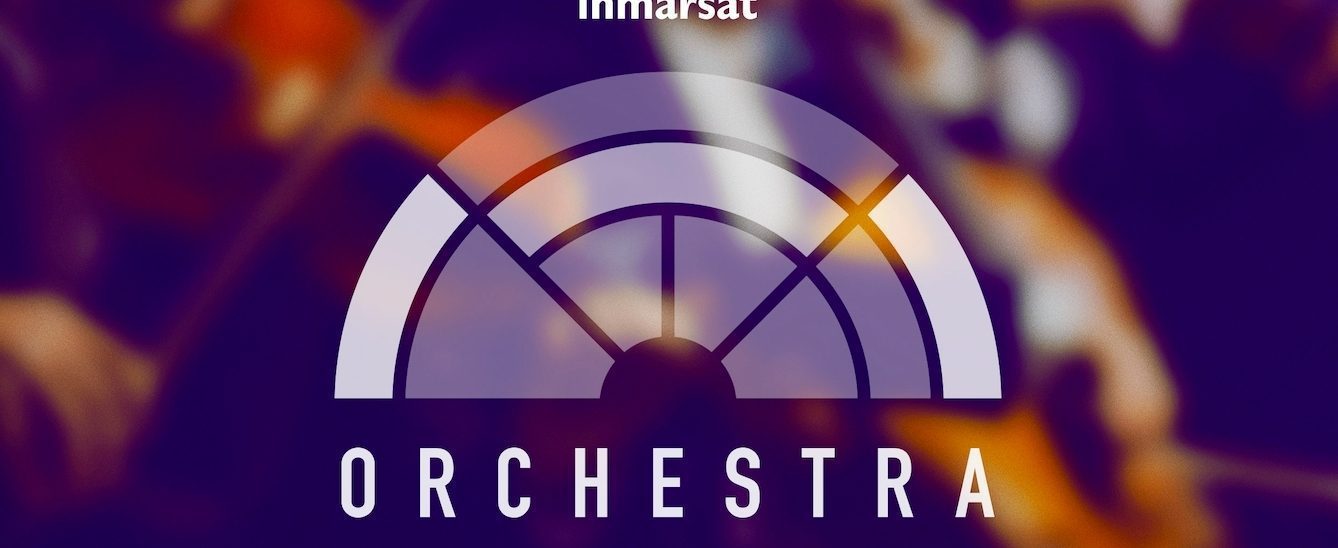A closer look at Inmarsat’s communications network, ORCHESTRA

Inmarsat ORCHESTRA will enable ground-breaking new services in new places for global mobility customers in maritime, aviation, government and enterprise.
Inmarsat has unveiled plans for ORCHESTRA, the communications network of the future. In the largest ever transformation of its current world-class services, Inmarsat ORCHESTRA will bring together existing geosynchronous (GEO) satellites with low earth orbit satellites (LEO) and terrestrial 5G into an integrated, high-performance solution.
Whether for a ship in a crowded port, an aircraft preparing to land at LAX, or a defence force deployed in a remote location, ORCHESTRA is designed to meet evolving connectivity needs in the mobility market with a service unmatched by any competitor offering, planned or in existence.
“An orchestra brings different instruments together, each supporting the other and playing its role in the masterpiece. We’re building ORCHESTRA on the same concept,” said Rajeev Suri, CEO of Inmarsat. “By combining the distinct qualities of GEO, LEO and 5G into a single network, we will deliver a service that is far greater than the sum of its parts. Our customers will benefit from dramatically expanded high throughput services around the world. This is the future of connectivity, and Inmarsat is perfectly positioned to bring it to the world with its proven technology expertise, right base of customers and partners, and financial strength.”
ORCHESTRA will open up a host of new and previously unattainable possibilities for industries across the world. New services include close-shore navigation for autonomous vessels, next-generation emergency safety services for maritime crews, secure and tactical private networks for governments and direct-to-cloud connections for airlines. New segments set to benefit from ORCHESTRA include energy rigs and drilling platforms, mid-market business aircraft, coastal vessels, smart passenger ships and urban air mobility.
ORCHESTRA is unique because it draws together the benefits of multiple technologies to create one cohesive solution. LEO, GEO and terrestrial networks have never been combined at scale before to create a unified connectivity service for mobility customers. The result is a ‘dynamic mesh network’ that will deliver high-performance connectivity everywhere. Bringing together the lowest average latency and fastest average speeds with unique resilience, ORCHESTRA will eliminate the industry-wide challenge of congested network ‘hot spots’.
Inmarsat’s existing GEO satellites – both GX and L-band – will continue to provide global coverage, high performance, security and resilience. Terrestrial 5G adds ultra-high capacity in busy ‘hot spots’, such as ports, airports, and sea canals. A small constellation of LEO satellites will layer additional high capacity over further high-demand areas such as oceanic flight corridors. As a result, the network will offer the highest capacity for mobility users worldwide, and at ‘hot spots’.
The network will benefit from ‘dynamic mesh’ technology, which allows individual customer terminals to direct traffic to and from other customer terminals. For example, this means that a ship within reach of a 5G ground station can receive ample capacity for its own needs as well as route capacity onwards to other vessels beyond terrestrial reach. This effectively creates a mobile web of terminals that extend the network’s reach and improve its performance and resilience.
“ORCHESTRA ensures Inmarsat is well-positioned to deliver long-term, profitable growth by delivering new services to existing customers, targeting near-adjacent market segments, and maintaining a strong competitive position,” said Suri. “We have a record of adopting the right technology at the right time. We plan to focus initially on delivering the ORCHESTRA terrestrial network while preparing for a future LEO constellation in the range of 150-175 satellites. This is a highly cost-effective approach that leverages Inmarsat’s leading GEO satellite networks as part of ORCHESTRA’s unique multi-layer architecture.”
The new approach means that Inmarsat can easily boost capacity in high-density areas such as ports and airports, ensuring customer needs continue to be met well into the future with capacity scaled directly to match their requirements. The initial five-year (2021-2026) total investment for ORCHESTRA is expected to be in the order of $100m.
READ MORE:
- Scaleup Spotlight: Climeworks is the key to fighting climate change
- How Wi-Fi6 will optimise hybrid working
- Which European countries have the best and worst cybersecurity?
- McAfee: How to make telehealth safer for a more convenient life online
About Inmarsat
Inmarsat is the world leader in global mobile satellite communications. It owns and operates the world’s most diverse global portfolio of mobile telecommunications satellite networks and holds a multi-layered, global spectrum portfolio, covering L-band, Ka-band and S-band, enabling unparalleled breadth and diversity in the solutions it provides. In addition, Inmarsat’s long-established global distribution network includes not only the world’s leading channel partners but also its own strong direct retail capabilities, enabling end to end customer service assurance.
For more news from Top Business Tech, don’t forget to subscribe to our daily bulletin!
